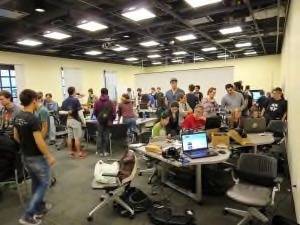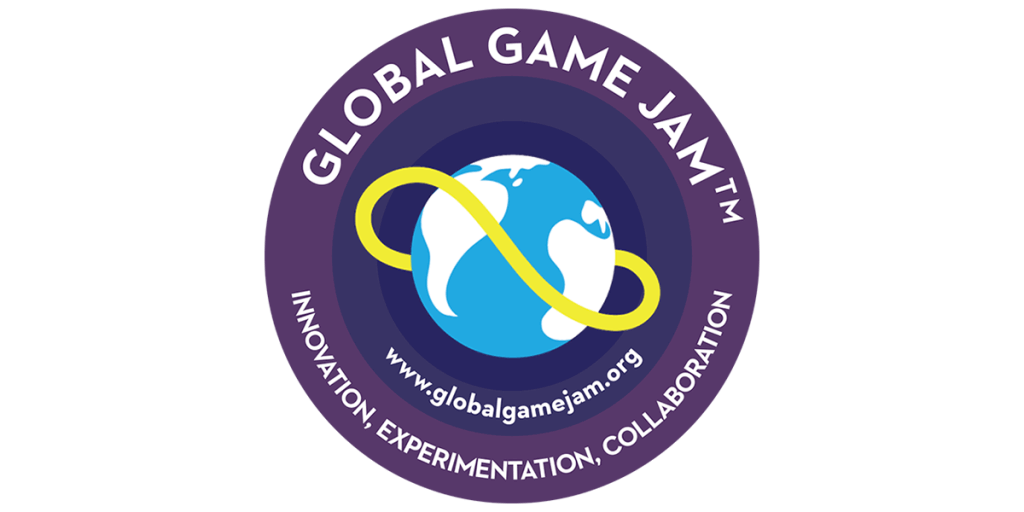Jam sessions are where some of music’s most memorable masterpieces were born. They enable artists to collaborate to create new and exciting music that could only be born from that unique environment. Now, apply that concept to game development, and instead of a handful of people in one room together, you have hundreds of these rooms spread out across the world. Welcome to the Global Game Jam (GGJ) .
The GGJ is an international non-profit organization that hosts annual game development jam sessions at over 500 locations in 93 countries, and these numbers are growing each year. These sessions happen at the same time, and center around a theme where developers around the world are challenged to come up with game concepts and create them.
In January 2016 alone, 6,866 games were created during the 48-hour jam session. That’s an incredible number of games, especially considering how little time is given for their conception, development, and testing. You can download any of them for free as they are all released under the Creative Commons v3 or v4 license.
In order to understand this organization’s mission a bit better, I spoke with Giselle Rosman, executive producer of the 2016 Global Game Jam.
Breaking down barriers for beginner game makers
One of the biggest obstacles people face when entering the game development world is in understanding just how accessible this industry has become. Projects like Steam Greenlight have broken down barriers between game makers and their users, making it far easier to get your game added to the largest online game retailers in the world.
“GGJ helps make game development more accessible by demystifying the process and increasing the discoverability of tools for beginner game makers,” says Rosman.
One of the most popular 3D game engines, Unity, is available for free. Not only that, but Unity Technologies – the company behind the Unity engine – is totally cool with developers using it to make games for profit.
The GGJ environment also makes it easier for new developers to reach out and collaborate with more experienced members of the group. They gain important developer skills like collaboration and task organization. In a 48-hour span, they may work on several games with multiple groups.
Dispelling the myth that success is limited by location

When someone mentions the global game development community, nations like the United States, Japan, Canada, and the United Kingdom might come to mind. These countries are among the most popular homes for game development companies, but they are far from the only ones.
“With North America so prolific in game making, particularly in the AAA space and the western world, surprise is a common reaction when people find out that games are made in other territories,” Rosman noted.
South Korea, for example, has a firm grip on the massive multiplayer online role-playing game (MMORPG) market with popular titles such as Guild Wars, Maple Story, and Aion: Upheaval.
Germany is another big player in the international game development space. For example, the widely-popular Crysis series – which is known for pushing graphics hardware to its limits – is developed by Crytek, a German company.
Hipster Whale, an Australian company with which GGJ’s Giselle Rosman works, created Crossy Road. This title features characters crossing a road in a modern take on the classic “Frogger” game and has recently made a deal with Disney to create Disney Crossy Road.
Markus “Notch” Persson is a Swedish game developer that created one of the most massively successful video games in a generation. His company, Mojang, created Minecraft – a game that achieved such outstanding international success that Persson’s development company was later purchased by Microsoft for $2.5 billion.
One of the coolest things about GGJ is that it brings people together from all over the world. While they may be in different rooms, they are together as one community, working to create new and interesting experiences for players, all while learning more about game development and honing their skills.
These participants gain new friendships and contacts in the development world. They can and often do move on to create projects together outside of the GGJ.
Why the Global Game Jam is important
Successful game development companies are a boon to regional economies. They generate employment, attract talented developers, and create an influx of revenue with minimal burden on local natural resources.
By cultivating a sense of community among developers across the world, the GGJ hopes to encourage more to take part in a creative industry that has long been dominated by a handful of regions of the world.
The games created at the jam sessions may not be the next Crossy Road or Minecraft, but the experience of creating them and the connections made at these events may well be the catalyst for an incredible generation of games to come.
If you’re interested in being part of the next Global Game Jam, the event is happening on January 20-22, 2017.






















